Pastelaria Adega Opens Its Sweet Doors in Downtown San Jose
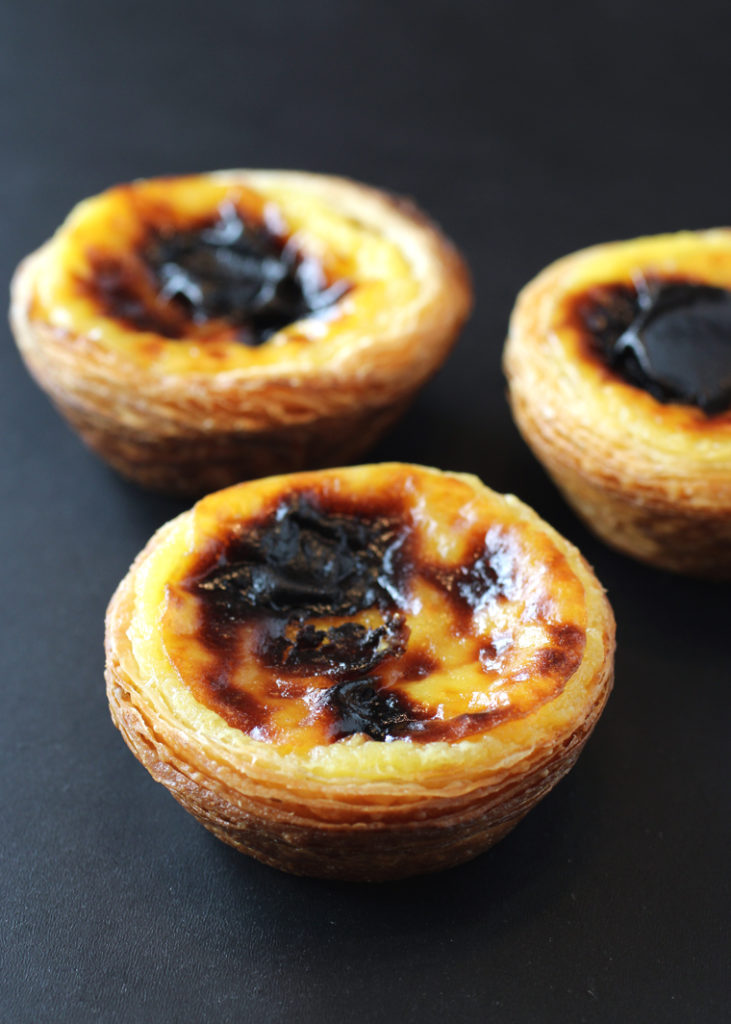
If heaven is a warm, eggy custard tart, you’re sure to be in total bliss then when the new Pastelaria Adega opens in downtown San Jose today.
From the team behind the award-winning, fine-dining Portuguese restaurant Adega in the city’s Little Portugal in the Alum Rock district comes a artisanal Portuguese bakery. It is open Tuesday through Sunday, 9 a.m. to 4 p.m.
Last night at a preview party, I had a chance to check out the new spot at at 30 E. Santa Clara St., Suite 130.

As Chef-Owner David Costa, a native of Portugal, says: It’s the type of place you would go to in Lisbon every day for coffee, pastry and bread.
Shelves brim with traditional loaves of Portuguese bread made with corn, whole wheat, rye, and even beet puree — all made with an 8-month-old starter.
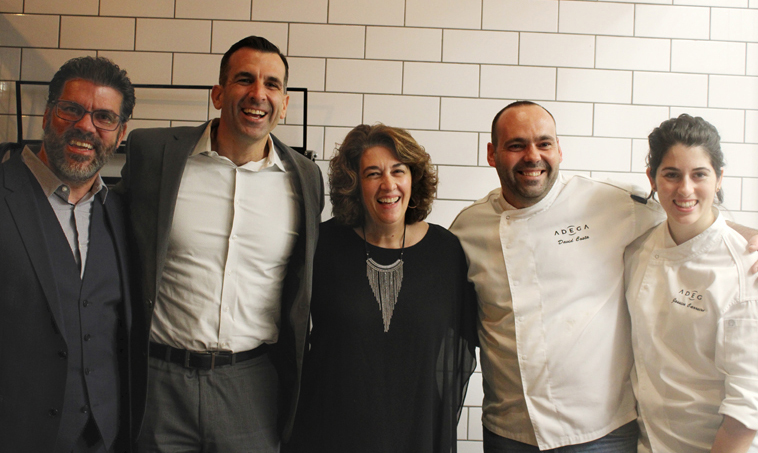
Everything that can be organic is, save the corn flour used, which a good source has yet to be found, explained Proprietor Carlos Carreira, who owns the bakery, as well as the restaurant, with his wife Fernanda Careira, and his daughter, Pastry Chef Jessica Carreira, whose dream has always been to have a bakery.
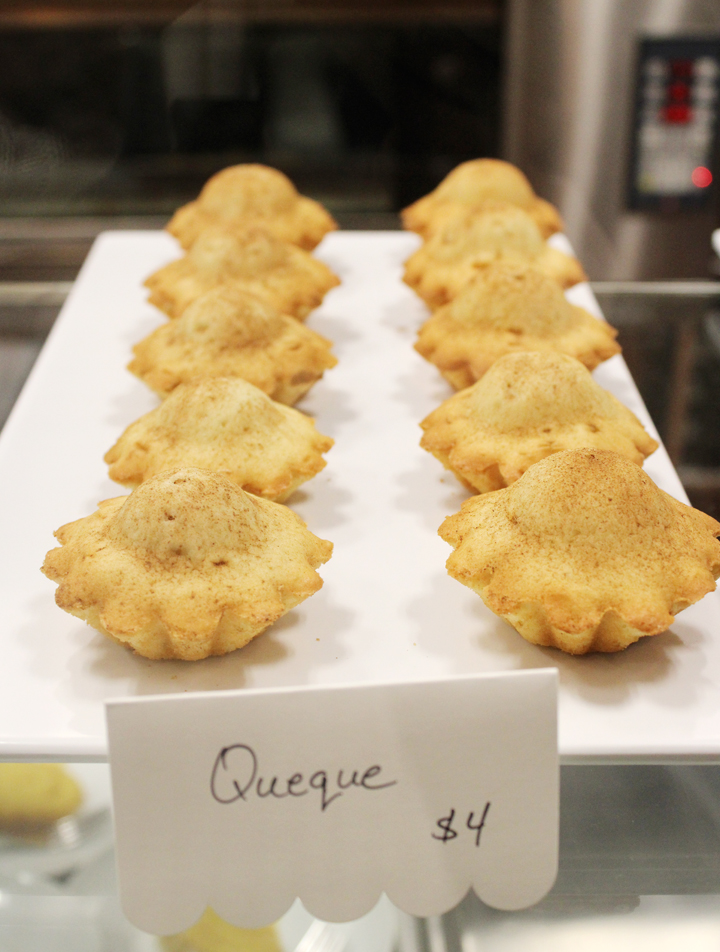
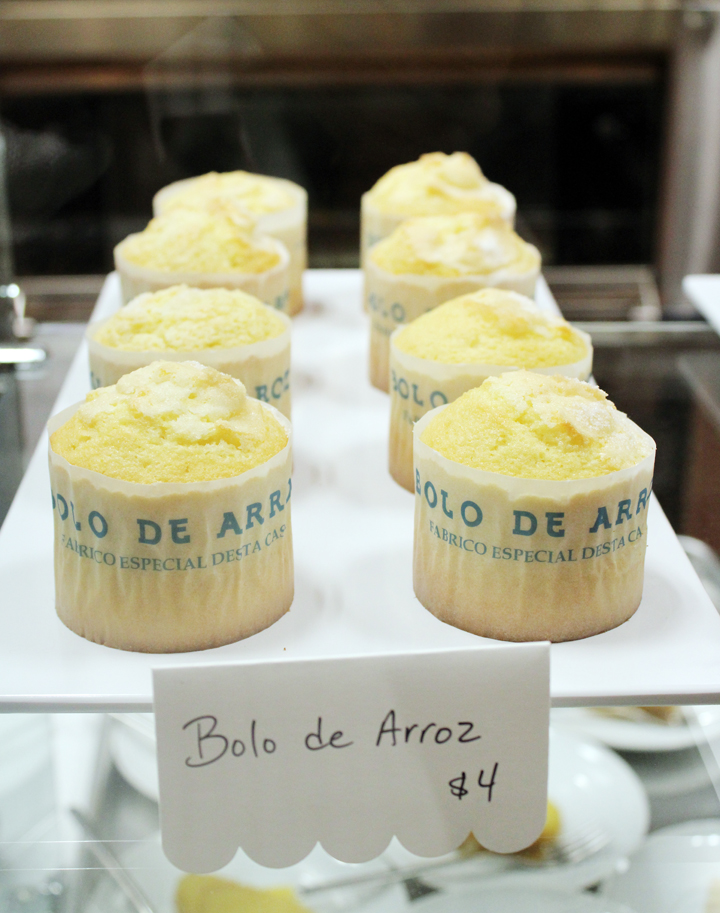
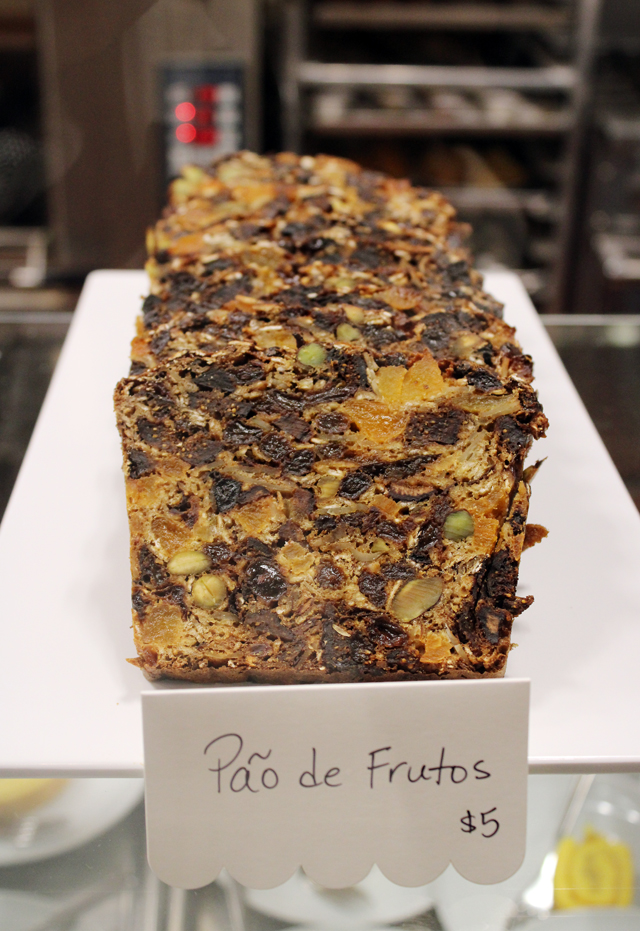
It sells six types of bread, and 12 sweet pastries that include Portuguese-style croissants that are made with brioche dough, lending them a softer, bready texture.
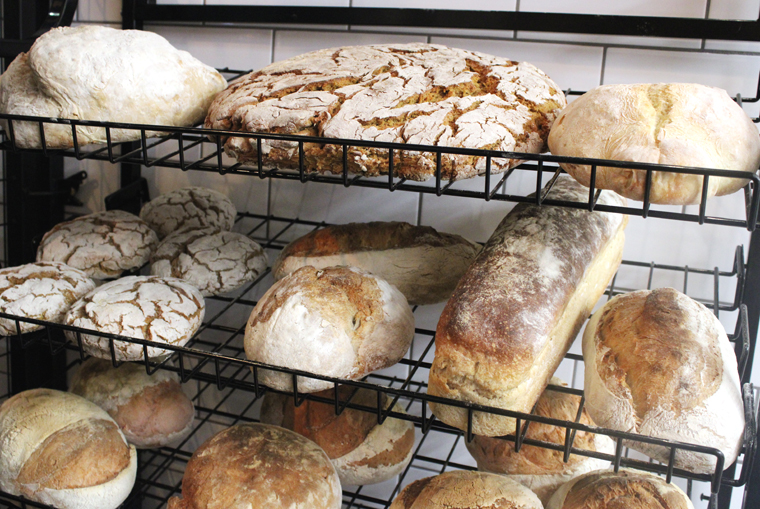
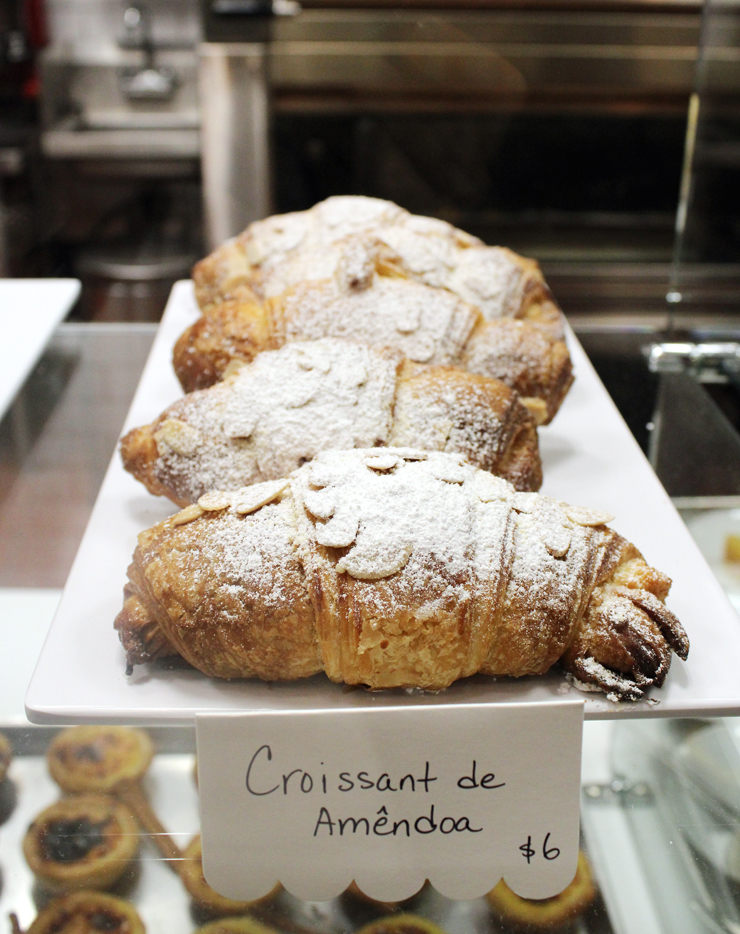
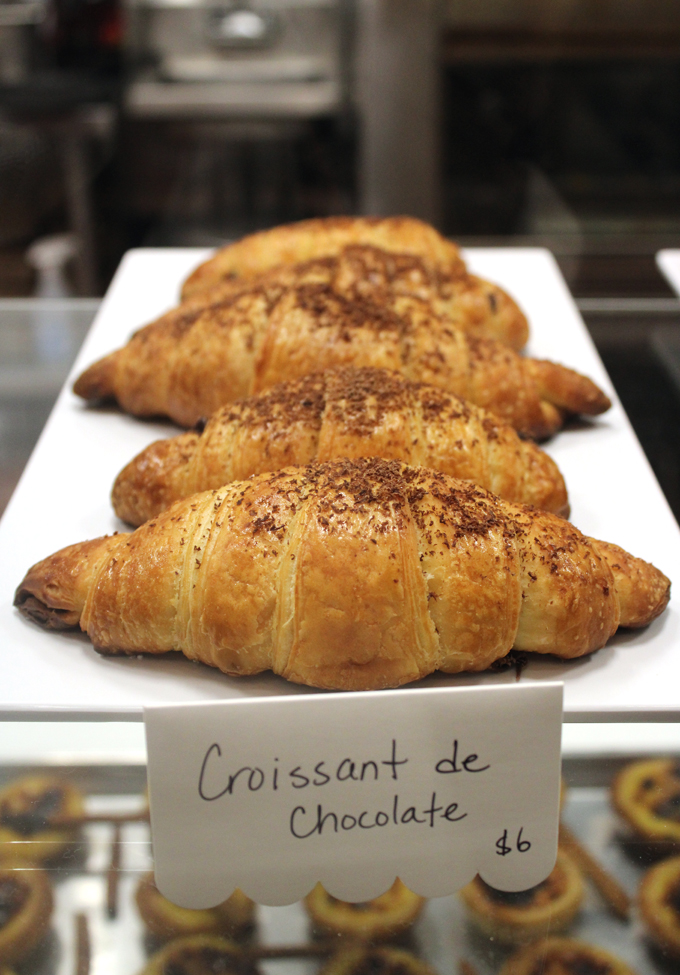
There area also six savory pastries that include chicken empanadas, shrimp fritters, and codfish cakes.

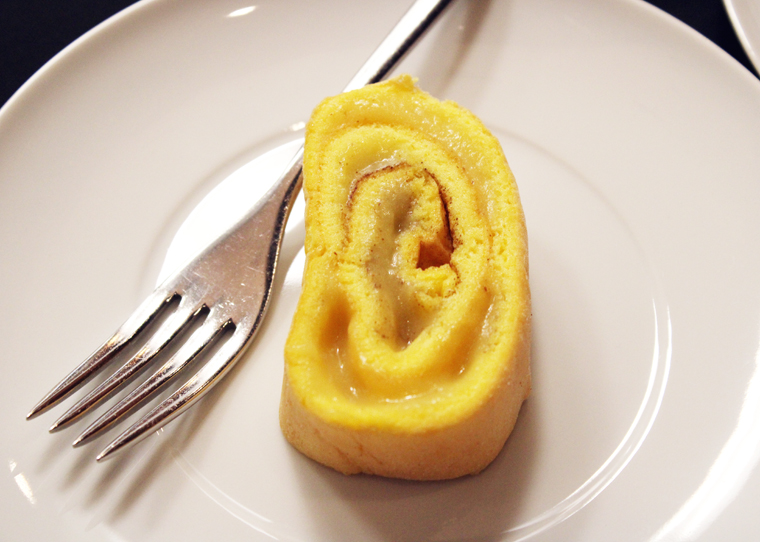

But of course, it’s the pastel de nata or Portuguese custard tart that is the rock star. It’s what prompted the bakery in the first place, after pastel de nata pop-ups at the restaurant during the summer proved how ravenous people were for these classic treats. People were bringing lawn chairs to camp out in line two hours before the pop-up began. And no matter how many they made, they would sell out in an hour.
Of course, there are other family-owned places in Alum Rock that make pastel de nata. But none have seen a frenzy quite like this.
“They all make great tarts,” says Carlos Carreira. “In my opinion, ours come closest to the ones in Lisbon. It’s the flakiness of the pastry and the softness of the custard. And ours is very creamy.”
Indeed, they are. The shells are so flaky that they shatter in layers upon the first bite. The custard is luscious, almost like a thick lemon curd consistency. And the tops are burnished to add a caramelized sweetness.
Through trial and error, Jessica Carreira, who previously worked in Portugal, perfected her version. The secrets? One, a specialty oven imported from Portugal made especially for baking pastel de nata on the top and bread on the bottom. The top drawer is only six inches tall, concentrating the heat just so to bake the tarts in only 10 minutes. Two, the unexpected ingredient of not butter, not shortening, but margarine, of all things, to create the pronounced flakiness. It’s what’s traditionally used in Portugal, Jessica Carreira says, without wanting to spill the beans further.

Now, I’ve been conditioned to turn up my nose at margarine. But I will eagerly set aside any qualms in order to enjoy my fill of these marvelous tarts. That’s how irresistible they are.
The Carreira family searched for a year to find the perfect spot for the bakery. Now that it’s open, they’re not done yet. Stay tuned for their next project — a casual, tapas-style eatery — to open in San Jose sometime next year.
Meantime, bide your time with a warm, wonderful pastel de nata.
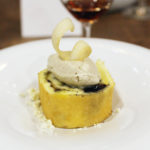
More: A Visit to Adega

The Pasteis de Nata is a 300 year old successful recipe adored today—margarine is 140 years old and processed.
Why not stick with traditional butter?
Ana: Good question. All I know is that Chef Jessica says margarine is used in Portugal, and produces what she considers the best results. It may be akin to how some home-bakers prefer shortening over butter in pie crust recipes because they swear it achieves the crispest, flakiest results.
So excited to hear about this bakery! I loved the food at Adega each time I dined there, and I’m looking forward to trying their breads & pastries.